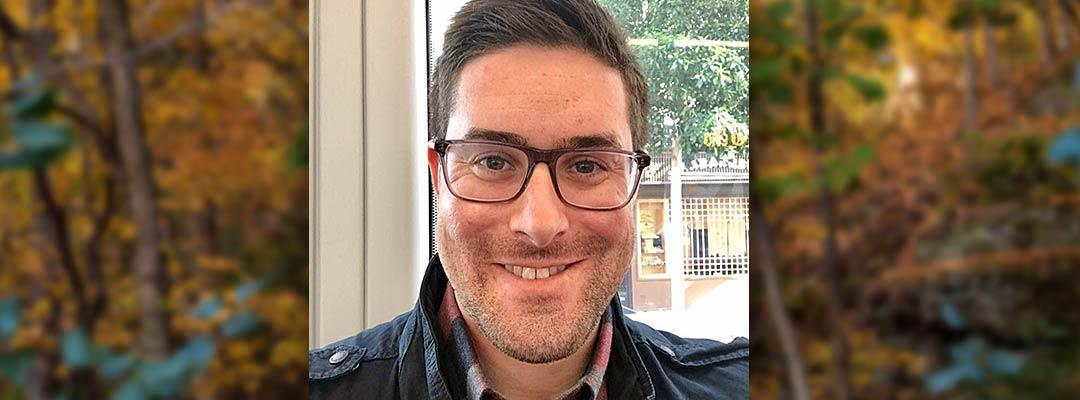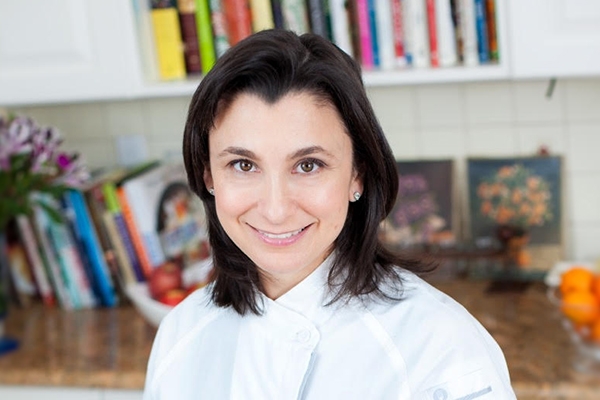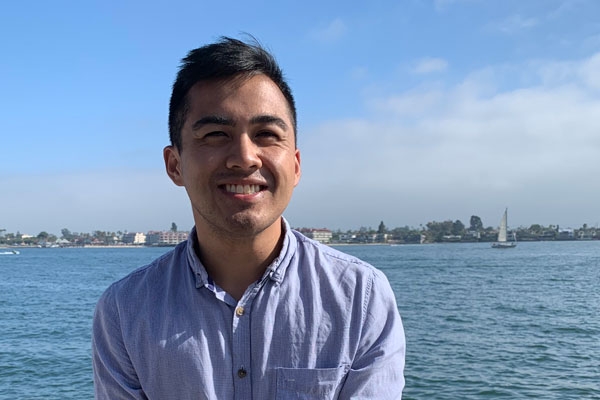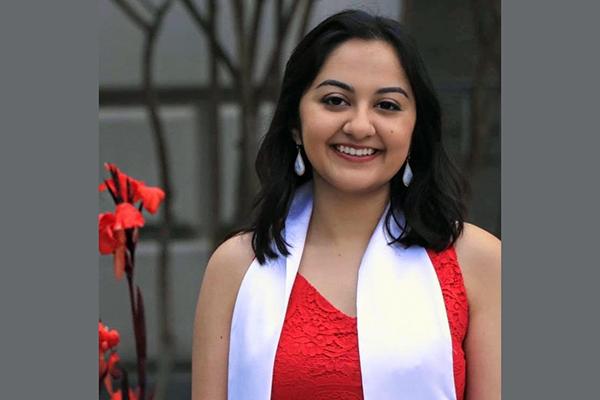“I have always felt drawn to helping people,” says Post-Baccalaureate Program for Counseling and Psychology Professions graduate Sam Kushner.
Helping people—in the form of providing exceptional customer service—is one of Sam’s core skills and the base for the jobs he’s had. He just needed help turning that skill into a career he loves.
Here, Sam documents his five tips to finding a career that suits your core skills—for him, it is a career helping clients with their mental health care.
Tip #1: Always Network
“When I was a teenager, I happened to give a Spanish-speaking patient directions to urgent care while I was waiting for my mom to get off work,” recalls Sam. “This patient initially asked my family friend, who worked at Palo Alto Medical Foundation in Santa Cruz, but my family friend didn’t speak Spanish. What I thought was an inconsequential interaction with someone turned into an opportunity a few years later when I was looking for a job. It turns out the family friend remembered this particular interaction and gave me a job as a medical biller.”
Sam worked as a medical biller at the foundation while he completed his undergraduate education at UC Santa Cruz. After graduating early with a B.A. in politics, taking a year off to travel and then moving to San Francisco, the only thing Sam knew for sure was that he did not want a career in politics. But through another networking opportunity—this time with a neighbor he encountered at a dog park—Sam found a job as an appliance store customer-service specialist within the first week of being in the city.
“My first piece of advice: Always network, even in places you'd least expect to,” he advises.
Tip #2: Have Short- and Long-Term Goals
“My second piece of advice: It's okay not to know what you want to do as long as you have some short- and long-term goals.
“During the first year or so of my retail job,” Sam continues, “I explored other paths of higher learning. I completed a project management certificate at San Francisco State University, but decided project management wasn't my calling. I continued to work while trying to figure out what I really wanted to do in life. I knew I liked helping people, but I wasn't yet sure in what capacity, so I decided to enroll at UC Berkeley Extension to see if psychology sparked my interest.”
In reality, his search didn’t stray much from what he was already doing.
“I conceptualize much of my professional identity as a customer service professional, so when I read more about psychology and the counseling profession as a potential path I could take, it sounded like a great way to expand on something I love: helping people.”
And this is when his career goals became clearer.
The Post-Baccalaureate Program for Counseling and Psychology Professions enabled Sam to pursue this career path.
“When I read more about the flexible and highly reputable program at UC Berkeley Extension, I decided to give it a try,” he remembers. “My goal was to see if I was interested enough in the content of my classes to continue to a graduate degree.”
Sam also found that he liked the structure of the program. “I wouldn't have been sure where to start if I had attempted to take individual classes,” Sam admits, “and I feel that the curriculum is very well rounded, especially since I was looking to apply to graduate school.”
“In addition to the educational content of the post-baccalaureate program, Counseling and Psychotherapy as a Career Option and Seminar on the Graduate Application Process were invaluable.”
Tip #3: Don’t Underestimate Yourself
Sam enrolled in both classroom and online courses, finding his interactions with classmates and instructors to be collaborative and supportive.
“My classroom experience was incredible!” he enthuses. “Never before had I been surrounded by so many people who not only shared a common interest, but were also highly motivated to learn and advance themselves toward a goal of higher learning. There were a lot of opportunities to network and collaborate with classmates on group projects, as well. All of the instructors I had were wonderful, and took the time to explain concepts and answer questions I had about course content.
“I also took a few online courses. I enjoyed doing the modules and learning in the comfort of my own home.”
Although he enrolled last in what he perceived to be his weakest subject, Sam ended up benefiting from the timing.
“I saved Research Methods in Psychology for last, because at the time, I was intimidated by the possibility of needing to do a lot of math,” he admits. “However, to my pleasant surprise, I really enjoyed research methods. Taking this course as I was starting a new job as a program coordinator in a research institution (UCSF) helped me communicate more effectively with research staff and clinicians.
“I also enjoyed Abnormal Psychology, which gave me my first bit of knowledge about eating disorders, which then helped me secure a position with the UCSF Eating Disorders Program.”
Tip #4: Learn What Can Give You an Edge
Remember his experience while waiting for his mom?
“My fourth piece of advice: Try to learn another language (or another skill that can help you attain your goals). Knowing a second language allows you to interact with more people and gives you an edge when being considered for a variety of jobs.”
As the New Patient and ED-IFT Coordinator, one of Sam’s many responsibilities is to work with Spanish-speaking patients who are new to the Eating Disorders Program.
He also represents the public face of the practice and works closely with the administrative, clinical and management teams to support operations and facilitate patient care. This helping role reinforces his long-term goal of becoming a clinical professional.
“Every day is an adventure in my current position,” he says. “I wear a lot of hats, ranging from appointment scheduling to non-clinical intake phone calls with new patients. I also get to fight patients' insurance companies in order for them to get coverage for services here—which is one of my favorite tasks since it is my way of advocating for mental health patients, even though it is not yet in a clinical capacity.”
As for counseling and treating patients with eating disorders in the future?
“I very much enjoy the multidisciplinary complexities of the eating disorders field,” Sam says. “I am continuously fascinated by the fact that while eating disorders are psychological illnesses, they can result in dire medical complications that oftentimes need to be addressed immediately.
“I think eating disorders also demonstrate how real and serious mental illnesses are, and how mental and physical health directly relate to each other, and should not be treated separately. I hope to return to the field of eating disorders after I graduate, but as a clinical professional.”
Because of our Post-Baccalaureate Program for Counseling and Psychology Professions, Sam was prepared to take the next step on his new career path: graduate school.
“I start my M.S.W. program at the University of Southern California in August, and I am so excited!
“In addition to the educational content of the post-baccalaureate program, Counseling and Psychotherapy as a Career Option and Seminar on the Graduate Application Process were invaluable. Another benefit of Extension that I utilized was the composite letter of recommendation, as I had no prior academic references in the context of the field of psychology.”
And what made USC the obvious choice for Sam? “USC was the only school I applied to, and I chose it because of the program content and its flexible online option, which is helpful for my schedule because I work during the day.”
His work with children and families at UCSF also guided his decision to attend USC and pursue its social work track.
“Due to discovering how much I enjoy working with patients and family members as combined units in my current role, I chose the Children and Families track for my studies at USC. I think the work done for adolescents with mental health issues is so critical to helping them have better outcomes later in life, so I hope to work with that population in a clinical capacity after I graduate.”
Tip #5: Remember How Far You’ve Come
After graduation, Sam hopes to still be with UCSF, but in a clinical capacity as a licensed clinical social worker.
“I love doing patient advocacy and intake work, so I hope to be able to do something along those lines in a clinical scope of practice,” he says.
Sam advises others who are thinking about a career change to find what works for them and not let past educational experiences hinder their future decisions.
“There is no one right path to achieving your goals and education; your goals may even change along the way,” Sam notes. “It took me a while to learn this, and one of my biggest regrets is that this perfectionist frame of mind led me to put so much unnecessary pressure on myself.
“Also, find time for yourself, especially if you plan to work in the counseling or psychology professions. The best piece of professional advice came to me from a nurse for whom I have the utmost respect: ‘You have to take care of yourself before you can take care of others.’”



